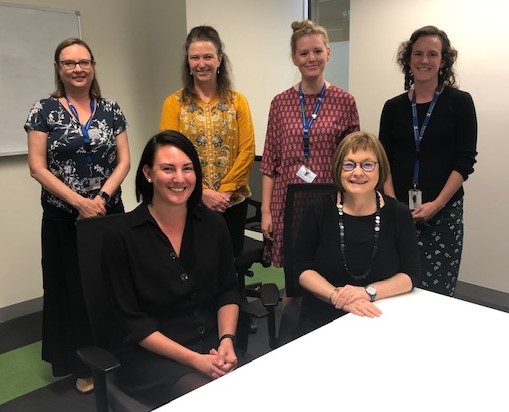The EDGE Study
The Educational and Developmental Gains in Early Childhood (EDGE) study is a partnership with The Front Project and the Victorian Department of Education and Training for a five-year evaluation of the state-wide roll-out of Three-Year-Old Kindergarten in Victoria.
The Educational and Developmental Gains in Early Childhood (EDGE) study
The University of Melbourne (UoM), in partnership with the Front Project and the Victorian Department of Education and Training, are undertaking a five-year evaluation of the state-wide roll-out of Three-Year-Old Kindergarten in Victoria. The project is led by UoM, with funding provided by the Paul Ramsay Foundation and the Ian Potter Foundation over the next five years. Delivering two years of high-quality kindergarten before school is vital for our youngest citizens as it provides the opportunity to gain an EDGE in learning and development, narrows the disadvantage gap and sets them up for future educational success. Currently, there is limited Australian evidence on the impact of kindergarten on children’s outcomes and on how to achieve an equitable and impactful system. The EDGE study will fill the gap in evidence by:
- Measuring the impact of two years of universal kindergarten on children’s learning and development and, in doing so, contribute to the international and Australian evidence base for early childhood education.
- Evaluating the effectiveness of implementing universal three-year-old kindergarten across Victoria and opportunities to improve/revise implementation at each stage.
- Highlighting insights for policymakers and decision-makers, reflecting the cycle of policy design, implementation and the evaluation of outcomes, with a focus on equity and quality.
- Providing practical information to the early childhood sector – teachers, educators, centre leaders and providers – on the programs, practices and learning experiences that encompass three-year-old kindergarten programs across Victoria.
- Demonstrating the return on investment of two years of early childhoodeducation, taking into account the educational, social and economic benefits of the policy, and building a case for future investment in children – particularly children experiencing disadvantage – and society as a whole.
This partnership reflects a shared, multi-disciplinary commitment to an evaluation that will deliver rigorous evidence, insights for policymakers, and practical information for early childhood teachers, centre leaders and providers.
Background
Currently, the Australian Government funds state and territory governments to provide 15 hours of preschool programs per week in the year before school for all children, through the Universal Access National Partnership (UANP).
Victoria is the first Australian state government to commit to providing two years of universal kindergarten to three- and four-year-old children. This commitment includes around $5 billion in funding to roll out universal three-year-old kindergarten across the state over ten years, from 2020.
From 2029, all Victorian children will have access to 15 hours of a kindergarten program per week, delivered by an early childhood teacher in the two years before school.
The EDGE team at the REEaCh Hub

